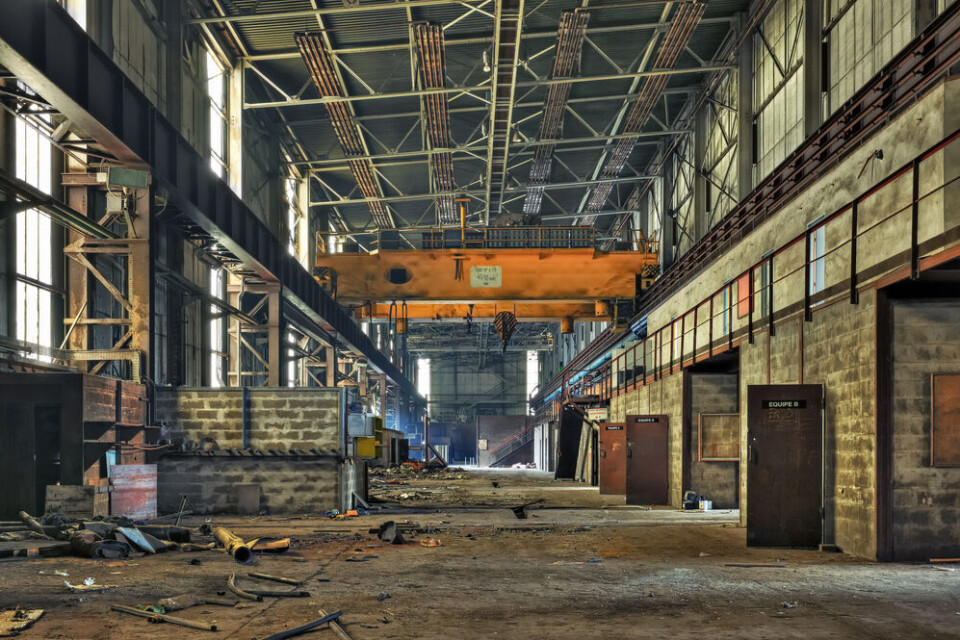-
Foreigners in France 'should be given local votes back'
Political right mobilised to try to halt debate on law extending rights
-
How Lyon death is reshaping French politics ahead of 2027 elections
Columnist Simon Heffer says the killing of far-right student activist Quentin Deranque will have reverberations around Europe
-
Tipping in France: Are card machine tip requests going too far?
Payment terminals increasingly ask if customers want to pay an extra amount
Has France entered period of decline as some election hopefuls claim?
Ahead of the vote in April, Nick Inman shares his opinion on why speaking about decline is not so simple

One of the campaign themes of this year’s presidential election is how to arrest France’s terminal decline.
Several candidates claim that only they have the solution to stop the country from going to the dogs. Or, to borrow a concept from America, to RAFSAG! – that’s French for “Make France Great Again” (Rendre à la France sa grandeur).
Before we consider the remedy, we should make sure the patient really is sick. Is France in such a bad way? Are its best days behind it, or are politicians simply exaggerating the situation for their own ends?
The difficulty of talking about decline is twofold. It assumes there was a utopian high point in the past and that there is some objective way to measure the descent from then to where we are now. Both of these are usually dealt with anecdotally rather than with reliable data.
The period of the past preferred by nostalgists is the so-called Trente Glorieuses, the “Glorious Thirty”: three decades of prosperity after World War Two from 1945 to 1975.This name suggests everything was marvellous then (obviously, it wasn’t) and that nothing has lived up to that period since, which is highly debatable.
Read more: ‘Why the ‘great replacement’ theory does not make sense in France’
So, is France going down or up, or is it simply cruising along at the same level it always has?
If it is in decline, we also have to ask: is it doing worse than any other comparable European country or is depression just par for the course?
It depends, of course, what we mean by decline. The word usually refers to economic performance: industrial capacity, investment, competitiveness, employment, and so on.
There has certainly been a lot of restructuring in France. Old industries such as mines and manufacturing have shrunk but the service sector and technology have increased in size.
The mega-rich multinational corporations of today may be mainly American and Chinese, but France can boast of Fortune 500 companies.
There is economic decline but the picture is not uniform: some areas of the country certainly have slumped, but others are booming (making allowances for the pandemic).
The situation must look less rosy from an orbital housing estate around a factory that has closed than it does from the main street of Saint-Tropez.
Read more: France to build six nuclear reactors and 50 offshore wind farms
Those who whine about decline are usually talking about more than prosperity and living standards.
They lament a more general collapse to be seen in the mismanagement of the political system, reduced respect for the values of the Republic, slipping standards in education, and the dwindling influence of French culture.
They also worry about the flagging of French prestige abroad: as witnessed by France being ruthlessly cut out of the Aukus submarine deal as if it were a second-rate power not taken seriously in the anglosphere. In searching for the answer to my question, it is probably not worth asking the French themselves, who tend to prefer pessimism to optimism.
Opinion pollsters will tell you that most French people they interview hold contradictory views, commonly reporting that “France is in terrible shape but personally I am doing okay”.
Read more: French election: Trotskyist candidate passes 500 signatures threshold
The danger is that decline can easily become a self-fulfilling prophecy.
Decline has a lot to do with perception: emphasising the bad stuff and failing to appreciate and preserve the good qualities that France can share with the world.
If presidential candidates play on the fear and insecurity of the electorate, repeatedly pointing to the failures of France and celebrating the good old days, then demoralisation could set in big time.
A divided, polarised France really could enter a period of decline. Then the prophets of doom would be able to say they were right all along.
Related stories:
The ‘ideal town of tomorrow’ imagined by the French public
French senate to debate Covid vaccine side-effects after public worry
Workers strike across France calling for pay rises amid inflation
























